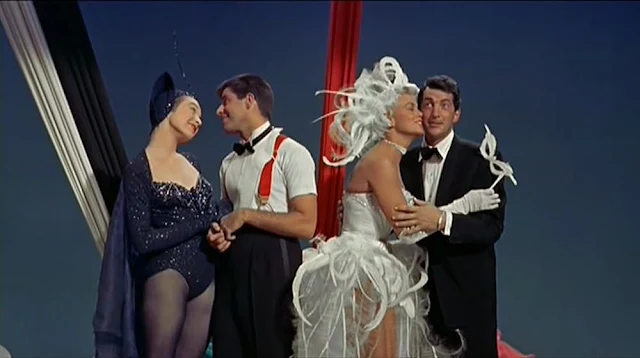Is there anything scarier than Robert De Niro's smile? It's what makes his bad guys, like Travis Bickle in
Taxi Driver (Martin Scorsese, 1976) or Max Cady in
Cape Fear (Scorsese, 1991), so unnerving, and it's what keeps us on the edge of our seats throughout
The King of Comedy. Rupert Pupkin isn't up to anything so murderous as Travis or Max, but who knows what restrains him from becoming like them? As a satire on the nature of celebrity in our times, Paul D. Zimmerman's screenplay doesn't break any new ground. But what keeps the movie from slumping into predictability are the high-wire, live-wire performances of De Niro and Sandra Bernhard as the obsessive fans and the marvelously restrained one of Jerry Lewis as late night talk-show host Jerry Langford, the object of their adulation. And, of course, Scorsese's ability to keep us guessing about what we're actually seeing: Is this scene taking place in real life, or is it a product of Rupert's deranged imagination? That extends to the movie's ending, in which Rupert, having kidnapped Langford and engineered a debut on network television, is released from prison and becomes a celebrity himself. Are we to take this as the film's comment on fame, like the phenomenon of Howard Beale in
Network (Sidney Lumet, 1976) and any number of people (many of them named Kardashian) who have become famous for mysterious reasons? (Incidentally, the odd thing about Rupert's standup routine is not that it's bad, but that it's exactly the sort of thing that one might have sat through while watching a late night show in 1982.) I prefer to think that we are still in Rupert's head at film's end -- it seems less formulaic that way. I don't know of a movie that stays more unbalanced and itchy from scene to scene.

